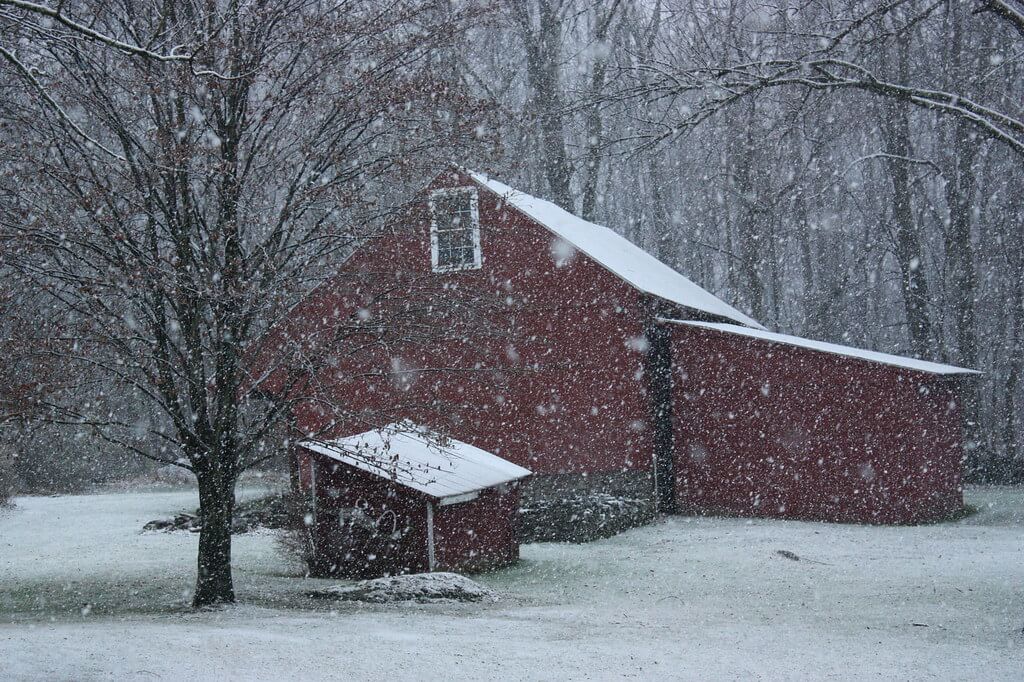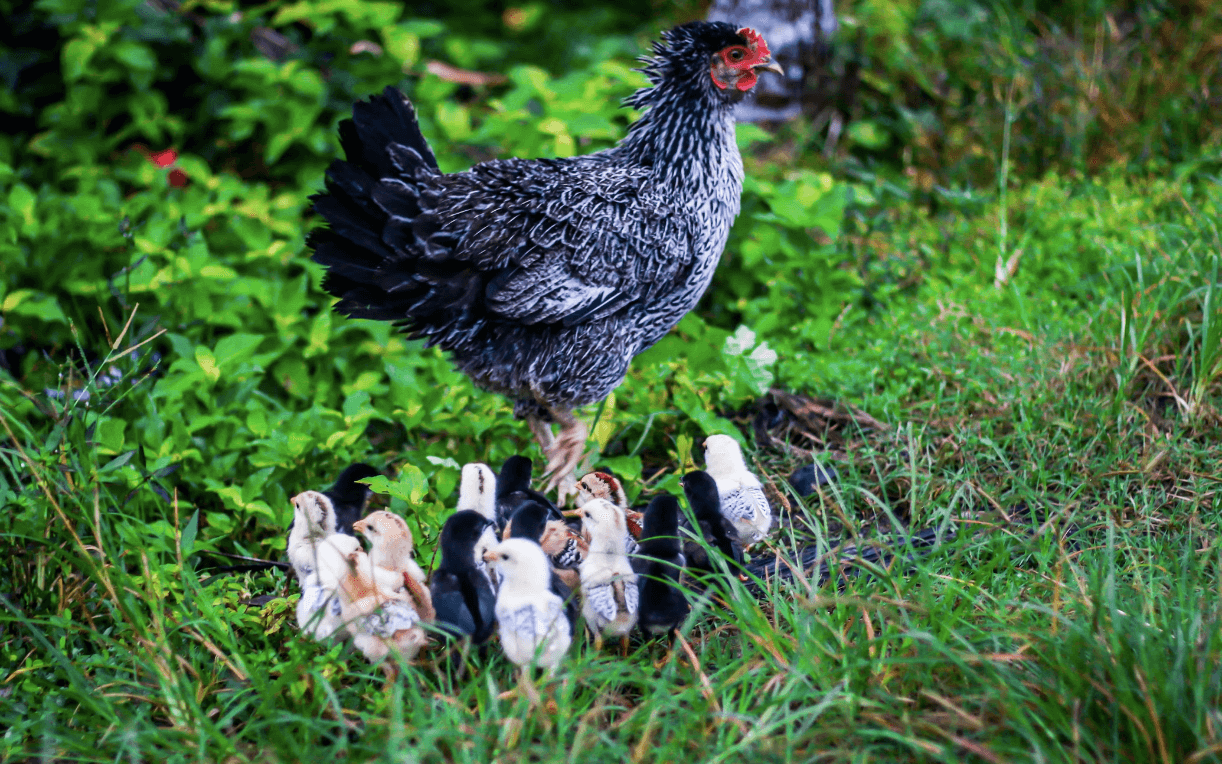Clean water is one of the most important things that your backyard flock needs constant access to in their chicken coop you need to water chickens all year round. The liquid is vital in helping your hens with crucial bodily functions like regulating their temperatures, digesting food, and eliminating waste.
Even a few hours without access to fresh water could cause your birds’ egg-laying rates to decline and their health to falter.
With water being so critical to the productivity and well-being of your hens, you must provide it to them in the best possible way. The last thing you need is an unreliable system that quickly becomes dirty or needs constant filling.
That’s why this article will provide you with our top way to keep your chickens well-watered all year round. We’ll tell you which system is best for ensuring your hens are always able to drink fresh, clean water and stay in tip-top shape.
But first, let’s discuss all the reasons why your chickens must have access to this life-giving liquid.
Why Water Is So Important for Chickens
Not only does water determine the overall health of your flock, but it also has a large impact on egg production and growth.
One of the biggest roles that water plays in the lives of your chickens is in digestion, which begins as soon as a bird picks up a bit of food. Saliva, which is mainly composed of water, lubricates the food and helps it pass into the crop.
Once there, water softens the food, making digestion more effective and preventing any clumps from forming that may harm the hen.
Chickens also need water for thermoregulation. Because these animals have no sweat glands, they have to rely on panting. This action causes the water in their mouths to evaporate and effectively cools their bodies down.
However, the birds must be able to replace this lost water so that they don’t go into heat stress, which is often life-threatening.
As for laying, an egg consists of approximately 75% water, and without regular access to a clean supply of the liquid, hens are physically unable to produce eggs. A bird laying 2-ounce eggs requires 1.5 ounces of water to produce each one.
Types of Chicken Waterers
There are various types of chicken waterers available on the market. Here’s a quick breakdown of the most common kinds:
Why a Nipple Waterer Is the Best Option for Your Flock
A nipple waterer is, without a doubt, the best way to water your flock year-round and ensure the consistent delivery of clean, fresh liquid to your birds.
These systems offer many advantages over other waterers with only one downside.
Advantages of Nipple Waterers
Since nipple drinkers deliver water through small openings, the liquid has minimal contact with the birds’ beaks. This means that the chances of the water becoming dirty are reduced.
Nipple drinkers are also designed to minimize wastage, as they provide water in controlled amounts when pecked. This prevents the spills that can so easily happen when using open water containers or troughs and provides a much more efficient system.
Using nipple waterers also helps lower the spread of any waterborne diseases amongst your flock. Since the liquid remains enclosed in the system, pathogens have fewer opportunities to contaminate it.
In this way, nipple watering systems promote better hygiene in your chicken coop, leading to healthier, more productive birds.
The Downside of Using Nipple Watering Systems
The only downside to using a nipple waterer is that the system can present a learning curve for your birds. Chickens may need some time to adapt to the drinker, especially if they are used to simper watering systems.
Your hens may struggle to find and use the nipples at first, which could reduce their water intake or cause them stress.
However, there is a way to train your birds to use this system to minimize their difficulties and ensure they drink enough water each day.
How to Train Your Birds to Use a Nipple Waterer
Training your birds to use a nipple watering system is usually a quick process that you can do in around 30 minutes, although older flocks may require a bit more time to learn.
Consider installing the drinker in your chicken coop the day before you start teaching them to use it so they can get used to the new equipment. At times, birds can initially be scared of new items in their environment.
Once you’re ready to start, remove any other water sources from the coop so that your chickens have the motivation to learn how to use the nipples.
Bring a bird’s beak directly to a nipple and gently press until liquid flows. This demonstrates the new water source to your hens and encourages them to drink. You won’t have to train every bird in your flock, as once the first few chickens start to use the nipples, the rest will follow.
If this method isn’t working for your hens, you may find using a laser pointer more effective. As your birds chase and peck at the light, have them follow it to the drinking nipples. When they peck at them and water flows, the birds should figure out how to use them.
For the first few days of your flock using the new system, monitor the water level in the container. Make sure the level is dropping so that you know your birds are drinking and are comfortable with using the nipples.
The Chicken Coop Company Nipple Waterer
Our Chicken Waterer is a superior nipple drinking system that reliably provides birds with clean drinking water all year round.
Its PVC pipe, sealed design prevents leaks, while the commercial grade nipples provide easy-flowing water to your flock without the worry of any spills.
Our system is easy to clean and refill and, depending on the model you buy, holds up to two gallons of water that can provide around a week’s worth of storage.
The waterer is built for longevity, crafted using heavy-duty plastics and a solid fastening mechanism that ensures durability even under harsh weather conditions.
In addition, our nipples feature freeze-proof technology to ensure your chickens have access to clean, fresh water even in cold climates. The system’s design also allows for a water heater to be used along with it to prevent liquid in the container from icing up in extreme cold.
Signs Your Chickens Aren’t Getting Enough Water
While dehydration mainly occurs during the hotter months, you should keep an eye out for it in your chickens all year round.
Summer dehydration is likely caused by a combination of heat and humidity, which can cause a hen to become thirsty very quickly. In the wintertime, dehydration usually occurs because of frozen water dishes or other mechanical failures in your drinking system.
The first sign of distress in your hens is excessive panting. The bird’s beak will be open while it holds its wings away from its body. This is when you should intervene to prevent the situation from becoming any worse.
Dehydrated chickens may also have pale combs and wattles due to ineffective circulation, which can result in reduced blood flow to these areas. While it seems counterintuitive, the hens may also get diarrhea.
Should a bird become lethargic or limp, it requires immediate treatment. Rehydrate your chicken as quickly as possible using a child’s electrolyte system, and seek veterinary attention to address any underlying health issues.
It’s crucial to check that your watering equipment is working properly every week to prevent dehydration in your birds. Regular maintenance includes cleaning the drinkers, checking for leaks or blockages, and ensuring that water flows from the nipples.
Staying proactive and monitoring your watering system regularly keeps your birds hydrated and healthy.
Ensure Healthy and Hydrated Hens
Using a nipple waterer is the best way to ensure you have a flock of healthy and hydrated hens all year round. While you do have to teach your birds to use this system at first, the extra effort is with it for the peace of mind and cleanliness it offers.
Feel free to contact us should you have any questions about nipple watering systems and how they could benefit your backyard flock. We’re always here to ensure you have the information you need to make the best possible choices for your chickens.





